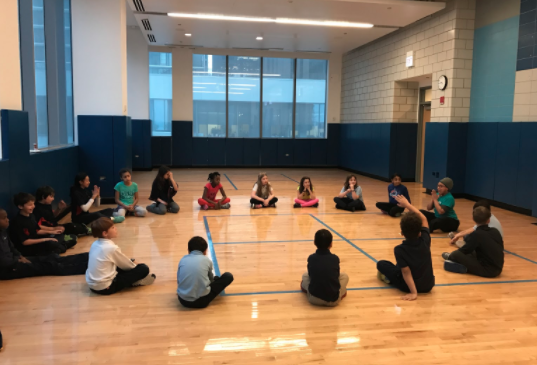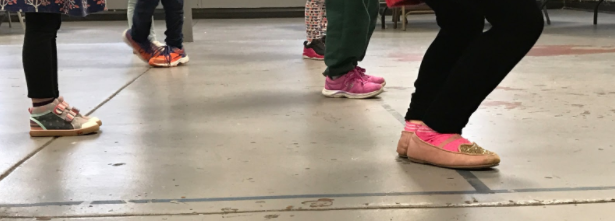How Families Can Best Support Their Students and School
By Katie Brines
Hi! I’m Katie Brines, and am the School Partnerships Coordinator for Design Dance. As we work to bring movement into the classroom and engage diverse learning styles, we are constantly thinking of how to take a holistic approach to arts education. So we asked three education professionals in three of our partner schools: Michelle Thompson at St. John Berchman’s, Sara Mackus at Bright Elementary, and Patrick Williams at Doolittle Elementary, how families can best support their children and their schools? Here’s what we learned:
What are some things families can do to help their children be successful at school?
Homework Support: Monitor your children’s homework and school projects. Check in to see what homework they have each night: Do they understand the assignments? Are they taking the time to complete them before moving on to the television, internet, etc.? Going over school work gives your children the one on one assistance they are unlikely to receive in a school setting. Help them create a proper homework environment, and be aware if they work best in a quiet space or with more stimulus.
Proper Materials: Ensure that your child always has note paper, notebooks, pencils, and folders. Periodically check with your child to see if they have used up their supplies. Often school supplies will need to be replenished every quarter.
Read! We’ve been hearing this for years, but it’s true! Put away your phone and be present. Reading to your child and having your child read to you builds confidence, connection, and fosters imagination and creativity. Storytelling is a vital form of communication and a great way to pass along family history and maybe a tall tale or two. So tuck in, snuggle up, and recount your favorite ghost story or youthful adventure as part of your daily routine.
* Continue building the narrative with one of our Storytime Dance Classes, where we combine movement with character building and comprehension: here
What challenges do your students face?
- Changing Emotions
- Bullying/Peer Pressure
- Different levels of academic success + special learning needs
- Communicating in a positive manner
- Hunger
- Homelessness
- Lack of access to warm/clean clothes
- Lack of access to technology + computers
- Lack of school supplies
- Interested in supporting students and schools in the Chicago area? https://www.donorschoose.org/
- How can families best support teachers and the school?
- Reach out to your child’s teachers and let them know you are allies in your child’s eduction
- Let teachers know you trust their judgment and expertise, and are there to support them when needed
- Ask about the level and number of books your child should be reading
- Find out what math skills your child is developing this year and practice them at home as a family
- Be honest with your child’s teachers - let them know when there are changes or difficulties at home that might affect your child at school
- Volunteer to help in the classroom
What are positive things you notice when students are prepared for school?
- Focus: Students are attentive and ready to begin activities right away
- Increased Confidence: Students are more helpful towards their peers in the classroom
- All around Happier
A special thanks to:
Michelle Thompson, 6-8th grade teacher, St. John Berchmans
Sara Mackus, K-8 Art Teacher, Bright Elementary
Patrick Williams, Culture & Climate Coordinator, Doolittle Elementary

